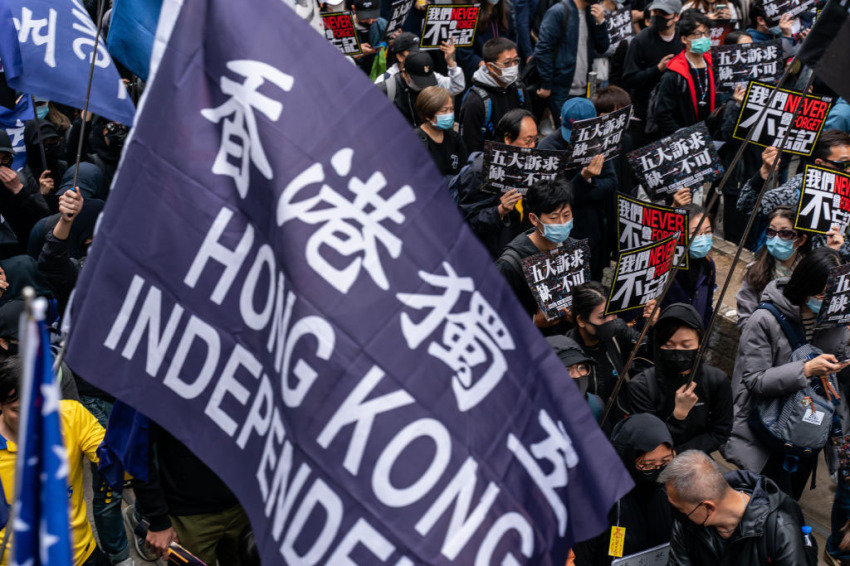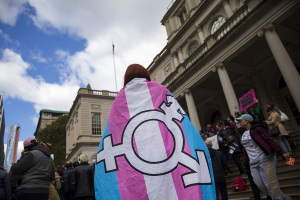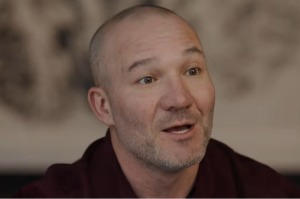China: Authorities cite Hong Kong protests as reason for intensifying persecution of Christians

Chinese Christians involved in Hong Kong’s pro-democracy protests have been subject to heightened persecution at the hands of the Communist government that continues to view people of faith as a hostile force endangering its regime.
According to religious liberty magazine Bitter Winter, many Hong Kong Christians have been active in the region’s ongoing anti-government demonstrations calling for democracy, amnesty for more than 6,400 people arrested so far, and an independent investigation into police actions.
In response, some local authorities in mainland China are using Hong Kongers' participation in the protests as an excuse to oppress all Christians, even those who belong to the state-sanctioned Three-Self church. Under Chinese law, places of worship must register and submit to government oversight.
On Oct. 28, 2019, when a Three-Shelf church in Anyuan county under the jurisdiction of Ganzhou city in the southwestern province of Jiangxi came to the local Religious Affairs Bureau to renew the church's permit, they were informed by an official that “It was decided at a meeting that all religious meetings should be banned and churches must be shut down.”
The official further argued that because many Christians had reportedly been involved in the Hong Kong "riots," and because Christianity has been brought to China from the West, Communist authorities are concerned that people of faith in mainland China might have contact with believers in Hong Kong and the United States, so all churches must stop their activities, he said.
Also in October, the Religious Affairs Bureau officials in Wuning county under the jurisdiction of Jiangxi’s Jiujiang city raided the meeting venue of a local Three-Self church. They destroyed its cross, removed the words “Christian Church” from the wall, and took down all religious symbols, for the reason that Christians in Hong Kong were involved in the “riots.”
After the raid, a Chinese national flag was left flying on top of the church.
Two house church believers from Xuzhou city in the eastern province of Jiangsu who planned to travel to Hong Kong for sermons during China’s National Day in October were also told they would lose their welfare benefits if they did so.
“At the worst, you’ll go to prison,” the police officers said, warning that traveling to Hong Kong amounted to going against the Communist Party, and those who do so are deemed as “anti-China forces.”
Similarly, in September, a preacher and the leader of a house church in Jiangxi’s Ganzhou city were summoned by the State Security Bureau and ordered to sign a statement promising not to go to Hong Kong. Their Hong Kong-Macau travel passes were then confiscated.
America Magazine notes that the Chinese government has also intensified rhetoric against Christian churches in Hong Kong in recent weeks, identifying them as part of the “foreign hostile forces” that seek to create political unrest.
A video titled “Chaotic Hong Kong religious groups abandon God’s will,” posted on a People’s Daily’s microblog, states, “Churches that stir chaos in Hong Kong have become political organs…. Let’s strip them of their religious cloaks—those religious con artists who meddle in politics and poison young people!"
Now in its seventh month, Hong Kong’s demonstrations began as a protest against a since-withdrawn extradition bill. It has since turned into a pro-democracy fight against authorities, the erosion of civil liberties, and China’s ruling Communist Party.
The protesters’ demands now include an independent inquiry into how police have handled protests; amnesty for arrested protesters; removal of the designation of protests as riots; and universal suffrage for the office of Hong Kong’s chief executive and its lawmaking body, the Legislative Council.
To welcome in the new year, hundreds of thousands of protesters flocked the streets of Hong Kong, warning authorities that they wouldn’t back down until their demands were met. The initially peaceful protests eventually turned violent, resulting in clashes between police and protesters, The Wall Street Journal reports. An estimated 400 people were arrested following the protests.
Carrie Lam, the chief executive of Hong Kong, said in her new year’s address that months of protests had brought “sadness, anxiety, disappointment and even rage" and vowed to “listen humbly” to the protesters to prevent demonstrations. However, she highlighted the importance of the “one country, two systems” framework, notes the Times.
Hong Kong, which has a population of approximately 7 million people, has been part of China since 1997, yet still operates with its own currency, legal system, and police force.
A hub for Christian missionaries under British rule, Hong Kong is now home to about 850,000 Christians and more than 1,500 churches.
Many Christians engaged with the social movement fear that losing Hong Kong’s autonomy and subjecting citizens to China’s legal system will erode religious freedom. China’s human rights abuses against Uighur Muslims, Christians, Falun Gong, and other religious minorities are well-documented.
In addition to participating in the demonstrations, many churches have opened their doors to protesters, allowing them to seek refuge and rest.
In October, Joseph Ha Chi-shing, the auxiliary bishop of Hong Kong’s Catholic Church, asked participants at a prayer meeting to remain peaceful as they demonstrated for democracy.
“Many people think because our opponents provoke us and don’t respond to us, we can harbor hatred and anger,” he said. But Hong Kong’s Christians, even in resistance, “are also responsible” to remain nonviolent, Bishop Ha said.



























